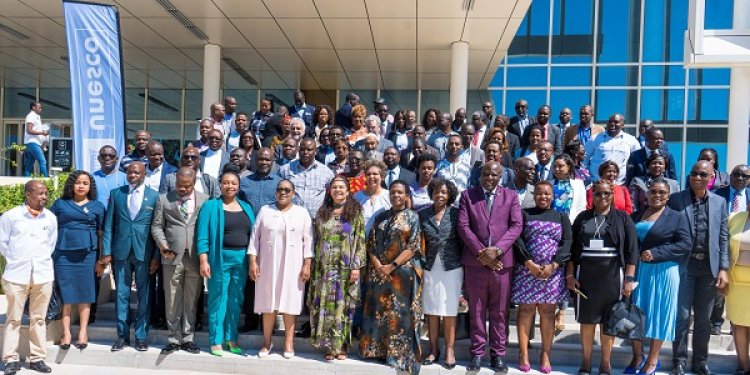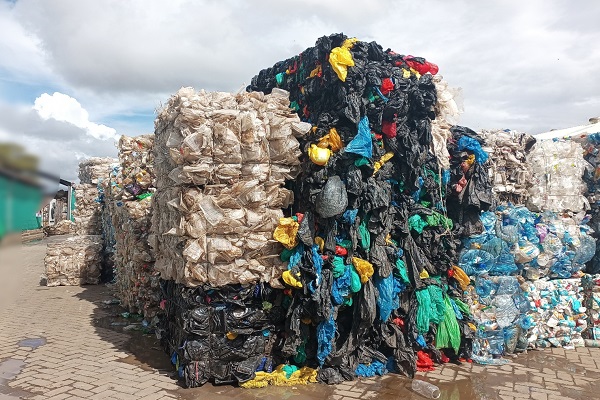After many years of adoption, several treaties negotiated and agreed upon at African Union (AU) level remain on paper amid lack of required threshold of ratifications by the member States to pave the way for their domestication and subsequent implementation.
Lack of political will has also been singled out as the reason treaties and decisions adopted at continental level cannot enter into force or are not binding in many countries, definitely denying millions of people across the continent a chance to claim rights enshrined in these policy frameworks.
Legal experts say that as AU pushes ahead with reforms aimed at achieving efficiency, delivering to the African citizens and positioning the continent among leading players on the global stage, it will be compelled to devise enforcement mechanisms to bring members States on the same page with regard to ratification and implementation of treaties and its decisons.
They indicate that non-ratification not only derail progress on a number of commitments and goals by the continental inter-governmental organization, but also acts as a stumbling block for implementation of key continental flagship projects aimed at transforming lives of millions population.
Evaluation
The African Union Commission (AUC) authorities, however, say a monitoring and evaluation exercise is underway to help determine the extent of the matter, affected treaties and specific reasons for non-ratification for the commission to reach out to the member States to work out a solution.
“We are undergoing the process of evaluating how we have implemented decisions taken over the past 10 years and we are going to be discussing in a retreat between member States and the Commission what will come out of that evaluation process so that we can devise ways of catching up. We will also understand why some decisions are lagging behind,” said Monique Nsanzabaganwa, Deputy Chairperson of the African Union Commission.
Dr. Nsanzabaganwa said the AU’s 10-year evaluation report, along with a draft strategy for the next 10 years are scheduled for tabling in February 2023.
We are undergoing the process of evaluating how we have implemented decisions taken over the past 10 years and we are going to be discussing in a retreat between member States and the Commission what will come out of that evaluation process so that we can devise ways of catching up. We will also understand why some decisions are lagging behind.
Monique Nsanzabaganwa, Deputy Chairperson of the African Union Commission
She was addressing journalists from 15 African countries who are part of the African Union Media Fellowship programme during the just concluded two-week study trip [see photos below] to the AU headquarters in Addis Ababa, Ethiopia.

Paywalls, narrative hurting Africa digital transformation drive – Experts
Complications
The AU legal team estimates the number of decisions/treaties adopted on annual basis at 85 on average. At least more than 1000 decisions were adopted over the past 10 years.
Many are enforceable only after a minimum number of countries have done ratifications and in most cases no less than 15 ratifications or a half the AU member States.
But it becomes even more complicated for treaties and decisions that require all member States to be party to, sign and ratify such as the single transport market, the AU Agenda 2063 and African Continental Free Trade Area (AfCFTA), among others.
According to the AU legal counsel, it’s only the African Charter on Human and Peoples’ Rights and the AfCFTA that are close to universal ratification, thanks to the campaign by heads of State championing the initiative.
“The low rate of ratification is a missed opportunity to advance the continental agenda, negatively impacting the effectiveness of the AU’s efforts to foster peace and stabilization, and to further economic development in Africa. As long as Member States fail to ratify, domesticate, and implement agreements made at the regional level into realities at the national level, these fundamental treaties remain purely aspirational,” the legal counsel had said of the need to accelerate ratification of AU treaties under a 2018 project.
Non-ratified treaties cover a wide range of issues from peace and security, development, environment, cooperation, trade, human rights and governance, among others.
Also read: Eyes on Govts in Africa to enact laws to tackle digital violence
For instance, the African Medicines Agency (AMA) adopted under a 2019 treaty as part of efforts to improve access to quality-assured drugs across the continent could not be operationalized as the AU struggled to obtain the required threshold of ratifications.
The treaty had not come into force until November last year when 15 countries ratified it. Even then, non-ratification by majority of the countries raise doubts as to whether the agency would achieve its mandate as poor-quality drugs would end up anywhere on the continent through porous borders of countries where the treaty is not binding.
So far only 19 countries of 54 member states have ratified the treaty establishing AMA.
According to the AU’s Infrastructure and Energy Department, three treaties dating back to 2010, 2014, and 2016 respectively cannot be enforced to date.
These include the Revised African Martime Transport Charter which needs four more ratifications from 11 currently to enter into force.
The implementation of the African Road Safety Charter, which was adopted in 2016 in response to the rising toll and economic cost of road traffic crashes on the continent, also continues to suffer delays amid lack of required number of ratifications.
There is also African Union Convention on Cyber Security and Personal Data Protection with only 13 ratifications since its adoption in 2014.
“We can do our part to draft good policies but without ratification the implementation becomes a challenge,” said Dr. Raissa Allogo, Senior Policy Officer.

Enforcement mechanism
While the AU commission has enforcement mechanisms for aspects like contributions whereby sanctions apply in case of delays or failure to remit contributions or in cases of anti-constitutional change of governments in member States, Dr. Nsanzabaganwa said these do not apply when it comes to normative policy frameworks like ratification of treaties and decisions.
Mr. Nouhou Thiam, Acting Secretary General to the Commission told Rwanda Post that unlike some intergovernmental organisations where decision taken at union level are automatically binding in member States, it is not the case at AU.
Decision to sign or ratify treaties by AU member States are entirely done in a very sovereign perspective, he said, and this generally involves tabling them in respective member states’ parliaments for approval.
“There are some factors which the commission cannot say why this or that country did not sign or ratify for some national political agenda which are beyond our mandate. We try to include into AU agenda these aspects of ratification challenges so member States ambassadors are aware and then they relay that information to their countries,” he said.
Also read: Sovereign data control could boost Africa’s ‘gig economy’
~ Reporting by Johnson Kanamugire in Addis Ababa










